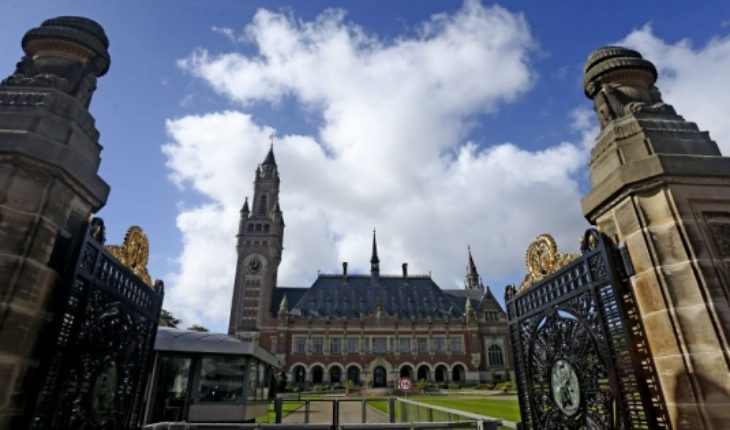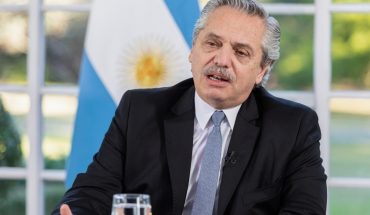the decision of the International Court of Justice of 1 of last October will be included as one of the great successes of Chilean diplomacy and foreign policy. For no one is a mystery that, notwithstanding that our relations with the international community are positive, very varied, and the prestige of Chile is an important asset, the Bolivian maritime aspiration had always been a matter of concern for our country and a perennial pain with our neighbouring high plateau.
The ruling cleared the doubts and speculations about the relations between Chile and Bolivia and puts an end to the sword of Damocles that weighed on our Ministry of Foreign Affairs in multilateral forums since the time of the League of Nations or even before, the Conference Pan-American. In fact, we have always been concerned to respond in time and properly any Bolivian invocation. Today, the Court reaffirmed that it will no longer be strictly necessary, or at least won’t be it to safeguard our legal position.
There is no doubt, the decision will be a legal precedent that will serve as a pillar for the defense of the interests of Chile in its relations with Bolivia. From now on, as a framework for bilateral relations, we will have the Treaty of 1904 and also the judgment of the Court, two instruments that are mutually reinforcing.
Moreover, the statement has an impartial and objective value. It has no so-called original sin that Bolivia has always hinted at on the Treaty of 1904, which described as unfair. It was issued by the principal judicial organ of the United Nations and it was signed by 13 judges of high prestige, elected by the General Assembly and the Security Council of the United Nations, further two judges ad hoc. This means that it is a bug with a legitimacy that can not be unknown to Bolivia without a serious loss of international prestige.
Despite this evidence, the first reaction of President Morales was accusing the court having issued a partial “report” and be at the service of the transnationals. He announced the dispatch of a letter – which report the alleged contradictions of the Court – which seems to have been stored carefully in a drawer of the Bolivian Foreign Ministry. Thus appears the latest Sacha Llorenti in United Nations intervention before the President of the International Court last week, in the co-agent reaffirmed a position that does not have a legal basis but that no injury to the High Court and which closes the controversy before that agency.
In Chile, Evo Morales returned to the load reading by the press a letter to the President Piñera that asks to restart the dialogue, now by invoking paragraph 176 of the decision. The same libretto which led us to the Court and let the bilateral relations in a sorry state. If Bolivia wants diplomacy with Chile, it will be better to take the paths and appropriate forms, allow a reasonable time and to focus on a future agenda. More integration and less nineteenth century demands.
From a long-term perspective, the ruling not only joins the Treaty of 1904, but it also reinforces it. Next to the process before the International Court, has a political and legal effect very important, because Bolivia expressly abandoned any chance of challenging the validity of the Treaty, which was again reaffirmed by Llorenti before the General Assembly of United Nations. Other net gain for the legal security of our borders.
In this same sense, the ruling not only closing the discussion with regard to the obligation to negotiate, but also any questioning of the Treaty of 1904. In particular, paragraphs 88 and 89 of the final judgment reaffirmed the value of the ruling preliminary, confirming that the dispute was not an obligation of result, which the Treaty of 1904 was not in question and that Bolivia does not have and has never had an of claim of sovereign access.
A last specific element that should be highlighted is that the opinion confirms that Chile has nothing to fear from its international conduct, present and past, while still acting as a rational actor, who undertakes a policy of good neighbourliness active and approximation of good faith with regional problems.
Chile does not have historical debts or mortgages of any kind, and demonstrated that our country, even for non-democratic historical periods, has acted in good faith and has not created false expectations in Bolivia. Our political and historical conduct has been validated by the highest court of the United Nations.
At a more general level, Chile will also present to the world their contribution to create more precise boundaries between the scope of the political and the legal. It is good news for diplomacy because it preserves the freedom of States to negotiate and let established clearly that there is a big difference between having the willingness to negotiate with a neighbour on issues that concern you and the intention to be bound legally to do so.
Chile has been characterized by a foreign policy that is based on respect for international law, respect for treaties and the peaceful settlement of disputes. In spite of some bad omens, the ruling confirmed that the best way of defending our interests is contributing to the strength of international law, multilateralism and international relations based on objective standards. This is participating actively in the consolidation of a predictable international order, in which the progressive development of international law is channeled by objective criteria within legal technique.
The Chancellery, immersed in a process of modernization and replacement of diplomatic pictures, can receive this decision with satisfaction, but it must act with sobriety. The Foreign Ministry has managed to interpret and represent a label of Chile: long term work and trust in the right building a strong image as a reliable player in the international arena.
Poured in this op-ed content is the sole responsibility of the author and do not necessarily reflect the editorial line nor the counter position.





